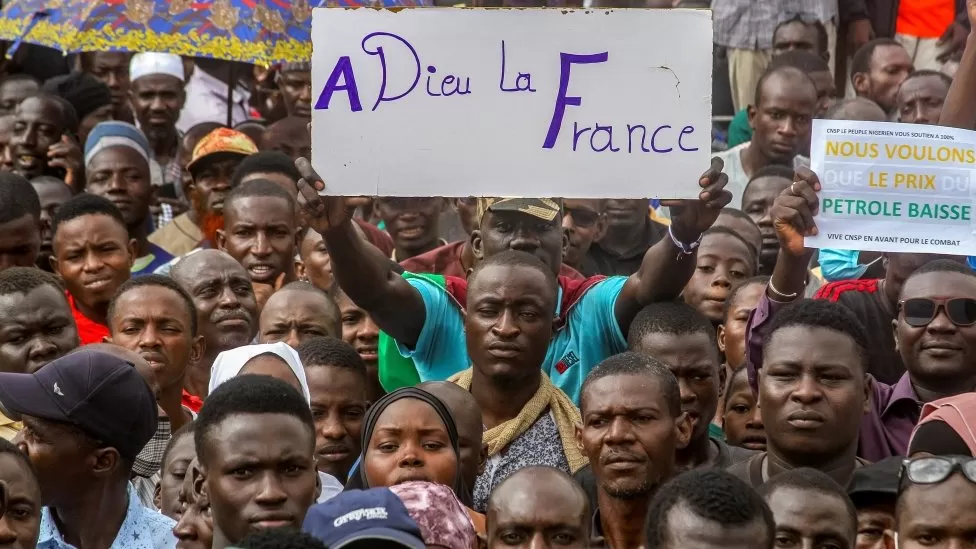President Emmanuel Macron has said France will withdraw its ambassador and end all military co-operation with Niger following a coup.
“France has decided to withdraw its ambassador. In the next hours our ambassador and several diplomats will return to France,” Mr Macron said.
He added that military co-operation was “over” and French troops would leave in “the months to come”.
The military junta which seized power in Niger in July welcomed the move.
“This Sunday we celebrate a new step towards the sovereignty of Niger,” the junta said, in a statement quoted by AFP news agency.
There are about 1,500 French soldiers in the landlocked West African country helping to fight Islamist militants. The US also has more than 1,000 troops in Niger but these have not been asked to leave.
The decision by Paris follows months of animosity and protests against the French presence in its former colony, with regular demonstrations in the capital Niamey.
The move deals a hammer blow to France’s operations against jihadists in the wider Sahel region and Paris’ influence there. But Mr Macron said France would “not be held hostage by the putschists,” speaking to France’s TF1 and France 2 television stations.
Why young Africans are celebrating military takeovers
Mr Macron said he still regarded ousted Niger President Mohamed Bazoum, currently held prisoner by the coup leaders, as the country’s “sole legitimate authority” and had informed him of his decision. He described the deposed president as a “hostage”.
“He was targeted by this coup d’etat because he was carrying out courageous reforms and because there was a largely ethnic settling of scores and a lot of political cowardice,” he said.
Niger is one of several former French colonies in West and Central Africa where the military has recently seized control – it follows Burkina Faso, Guinea, Mali and Chad. The latest coup was in Gabon in August.
Anti-French vitriol has flourished in the region in recent years, with many local politicians accusing Paris of carrying out neocolonialist policies – a charge denied by France.
There have also been concerns in the West over the growing role in the Sahel of Russia’s Wagner mercenary group. It is accused of human rights abuses and has been helping some new military regimes.
The regional Economic Community of West African States (Ecowas), supported by France, has threatened military intervention in Niger to reinstate Mr Bazoum. But so far it has not acted.
Map showing Sahel region of Africa
Niger’s military leaders told French ambassador Sylvain Itte he had to leave the country after they overthrew Mr Bazoum on 26 July.
However, a 48-hour ultimatum for him to leave, issued in August, passed with him still in place as the French government refused to comply, or to recognise the military regime as legitimate.
Mr Macron’s statement also comes hours after Niger’s coup leaders banned “French aircraft” from flying over the country.
The regional air safety organisation, ASECNA, said that Niger’s airspace was “open to all national and international commercial flights except for French aircraft or aircraft chartered by France including those of the airline Air France”.
The airspace would remain closed for “all military, operational and other special flights”, unless receiving prior authorisation, the message said.
Air France told AFP simply that it was “not flying over Niger airspace”.
The US relocated some of its troop from Niamey to the central city of Agadez for security reasons earlier this month. The US’ largest drone base in the region is in Niger and it’s been the base for anti-jihadist operations in the Sahel. It also trains Nigerien soldiers.
Although the US successfully negotiated with the junta to resume some flights, it is not clear when full counterterrorism and training operations will resume.
